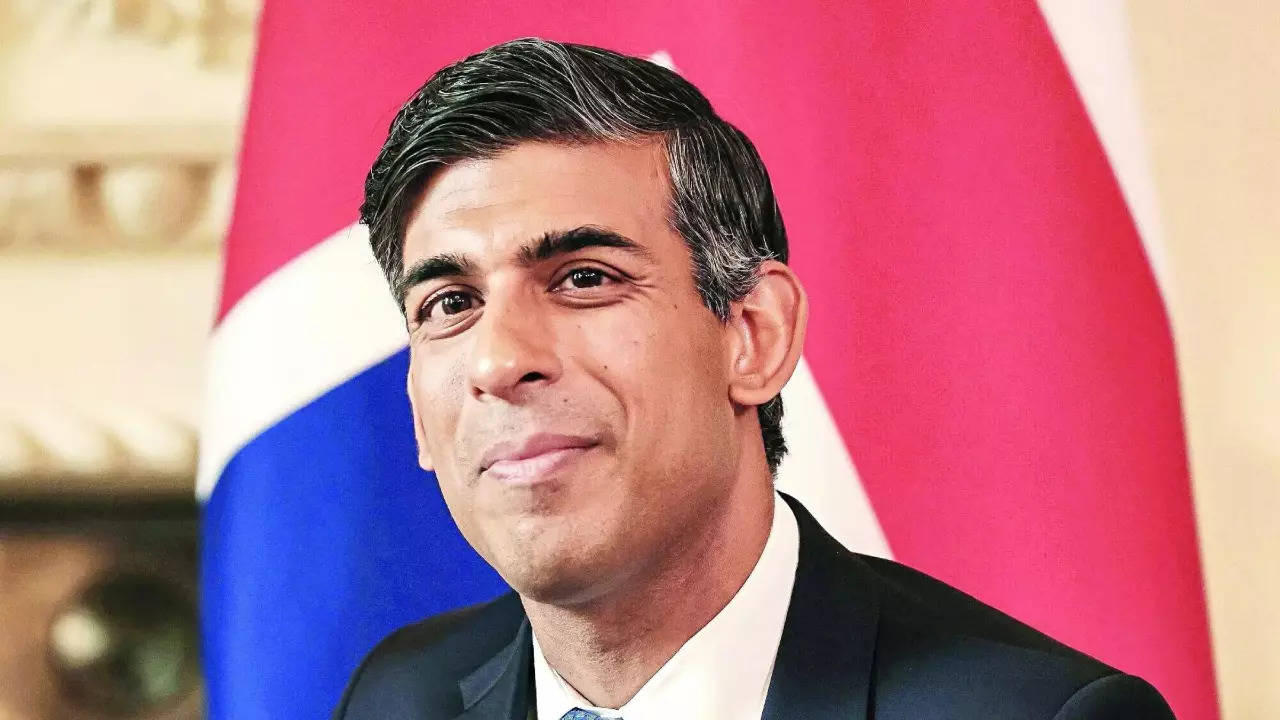UK opposition leader Keir Starmer likes to put his Labour Party front and centre in his social media messaging. For Prime Minister Rishi Sunak, it’s all about himself –– the British premier is more than 25 times likelier to use the word “I” than name his own Conservative Party in posts on the social media site X, a Bloomberg research has found.
Starmer, for his part, is twice as likely to name Labour than use the personal pronoun. Sunak’s office declined to comment. The Conservative Party didn’t immediately respond to a request for comment. “It is in the party’s interest to let Sunak be the front face, because he’s the one with higher credibility,” said Despina Alexiadou, a politics lecturer at the University of Strathclyde. “The party is discredited on the basis of the past leaders.” Starmer’s approach makes sense because “he needs to be the unifying leader,” she said.
YouGov’s latest poll puts Labour 20 points ahead, giving Sunak a mountain to climb to win a general election that he must hold in January 2025 at the latest. But while focusing on the individual may have served Boris Johnson well in the last vote in 2019, the technocratic Sunak lacks his charisma. “It takes a very brave politician to place themselves above their party,” said Carl Shoben, director of strategic communications at polling company Survation.
“Individual politicians like to think that they’re a driver, but incredibly rarely are.”
Former PM Theresa May found that out to her cost when she called snap polls in 2017. Her campaign focused heavily on her own reputation and she urged voters to “make me stronger” by increasing her slim majority to help get a Brexit deal through Parliament. While May enjoyed a strong lead at the outset of campaigning, her fortunes waned, and she lost seats.
In the run-up to the 2019 polls, Johnson mentioned his party seven times as often Sunak does now, Bloomberg found. While May mentioned her party during the 2017 campaign more than Sunak does now, she did so less than a third as often as Johnson.
Bloomberg analyzed posts on the personal X accounts of Sunak and Starmer between Oct 25 last year, when the prime minister took office following Liz Truss’s disastrous 7-week term, and Aug 27. Starmer posted 657 times, while Sunak made 848 posts. Sunak’s posts on the feed of his office as UK prime minister weren’t analyzed, because they are less partypolitical. Over that period, Sunak used the word “I” 530 times and Starmer did so 236 times. The leaders mentioned their parties 20 and 531 times respectively.
Starmer, for his part, is twice as likely to name Labour than use the personal pronoun. Sunak’s office declined to comment. The Conservative Party didn’t immediately respond to a request for comment. “It is in the party’s interest to let Sunak be the front face, because he’s the one with higher credibility,” said Despina Alexiadou, a politics lecturer at the University of Strathclyde. “The party is discredited on the basis of the past leaders.” Starmer’s approach makes sense because “he needs to be the unifying leader,” she said.
YouGov’s latest poll puts Labour 20 points ahead, giving Sunak a mountain to climb to win a general election that he must hold in January 2025 at the latest. But while focusing on the individual may have served Boris Johnson well in the last vote in 2019, the technocratic Sunak lacks his charisma. “It takes a very brave politician to place themselves above their party,” said Carl Shoben, director of strategic communications at polling company Survation.
“Individual politicians like to think that they’re a driver, but incredibly rarely are.”
Former PM Theresa May found that out to her cost when she called snap polls in 2017. Her campaign focused heavily on her own reputation and she urged voters to “make me stronger” by increasing her slim majority to help get a Brexit deal through Parliament. While May enjoyed a strong lead at the outset of campaigning, her fortunes waned, and she lost seats.
In the run-up to the 2019 polls, Johnson mentioned his party seven times as often Sunak does now, Bloomberg found. While May mentioned her party during the 2017 campaign more than Sunak does now, she did so less than a third as often as Johnson.
Bloomberg analyzed posts on the personal X accounts of Sunak and Starmer between Oct 25 last year, when the prime minister took office following Liz Truss’s disastrous 7-week term, and Aug 27. Starmer posted 657 times, while Sunak made 848 posts. Sunak’s posts on the feed of his office as UK prime minister weren’t analyzed, because they are less partypolitical. Over that period, Sunak used the word “I” 530 times and Starmer did so 236 times. The leaders mentioned their parties 20 and 531 times respectively.
Denial of responsibility! Todays Chronic is an automatic aggregator of the all world’s media. In each content, the hyperlink to the primary source is specified. All trademarks belong to their rightful owners, all materials to their authors. If you are the owner of the content and do not want us to publish your materials, please contact us by email – todayschronic.com. The content will be deleted within 24 hours.


